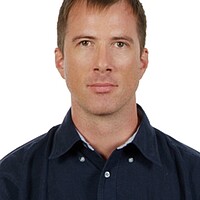Taiwan invites Chinese majority to try being indigenous for a day
| YANPING TOWNSHIP, Taiwan
A local, slice-of-life story from a Monitor correspondent
Taiwan may be known for its city life, but one resort is trying to highlight a less visible side of the island: Taiwan's indigenous people, who are considered second-class.
A creek feeds the swimming pool at a mountainside compound in remote southwestern Taiwan, keeping the water ice cold and introducing the odd tadpole or shrimp. Fatty wild pig is on the menu. Drumming and singing top the afternoon agenda. Geckos live inside the wood cabin-like guest rooms.
Because of these elements rather than despite them, this uncut slice of Taiwan’s millennia-old indigenous lifestyle draws up to 120,000 people per year. The mostly Chinese tourists visit Bunun Village to witness a part of their island’s past that is otherwise out of reach, as indigenous people become assimilated into an often-invisible underclass.
“My impression before was that aborigine culture was pretty backwards, not too advanced,” says Jamie Lou, a tourist from Taipei who has come to spend the night, as he drinks coffee at an outdoor table overlooking several green mountain ridges where the Bunun tribe once hunted and farmed. “But I can see can it’s not bad, it’s quite a multi-level lifestyle and self-reliant.”
Taiwan’s indigenous people, also known as aborigines, trace their history as far back as 3,500 years when they made up part of an Austronesian diaspora ranging from Madagascar through Southeast Asia and across the South Pacific.
Today, aborigines make up 2 percent of the island’s 23 million people, the majority being Chinese who began populating the island about 400 years ago. And though they're assimilated more or less, they have held a lower status in mainstream life. Taiwan's majority sees indigenous people as poor, lacking skills and prone to become alcoholics.
The Nationalist Party’s former strongman Chiang Kai-shek began assimilating indigenous people into Chinese society more than 50 years ago after he moved his government from China to Taiwan. Inspired partly by ex-president Chen Shui-bian’s effort to carve out a Taiwanese identity separate from China, ethnic Chinese have increasingly explored the island’s aboriginal legacy.
Bunun Village founder Pai Kuang-sheng opened the retreat in 1995 by giving the land once farmed by his parents to an indigenous foundation that now operates it.
The retreat, also known as a leisure farm, lets people from the ethnic Bunun indigenous group work on native land rather than leaving for often low-paying jobs in urban Taiwan, Mr. Pai says. New hires on the mostly aborigine staff of 60 earn at least $706 per month, often more and comparable to starting pay in Taipei.
“In the past there were no jobs, so aborigines all went to the cities for dangerous jobs, without dignity. So I asked myself how we could have a workplace, using our water, air, environment, and different kind of culture,” says Mr. Pai, a longtime and outspoken defender of indigenous people’s rights. “That was my dream.”
Bunun Village fills 80 percent of its 68 guest rooms on weekends and all of them during public holidays. A steady column of day tourists marches up the 20-hectare compound’s forested paths, eyeing woodcarvings of hunters, including one with a head in its hand.
Some try archery, a traditional hunting technique, or watch people weave multi-colored fabrics. Bunun people dance and sing every afternoon, when tourist head counts reach a peak. A few stroll into the retreat’s organic pineapple farms or attempt a frigid swim.
“When they come back here, they are indigenous people, not any shame,” Mr. Pai says. “Our culture, music, humor, and sport are as good as Han [Chinese] people’s.”







